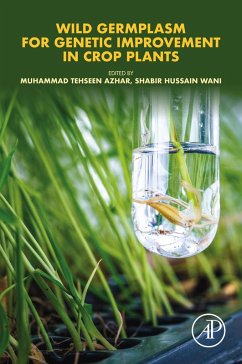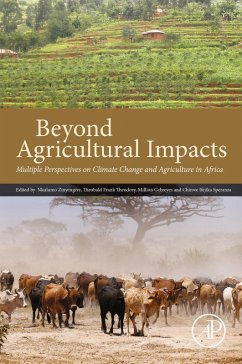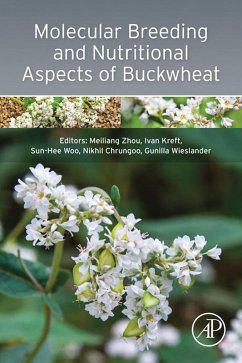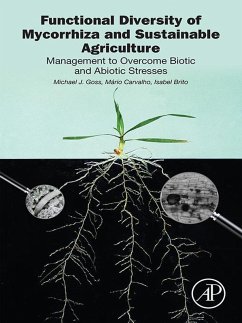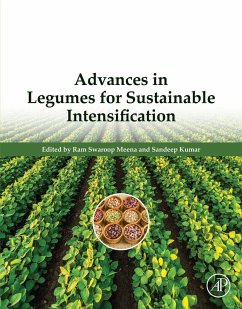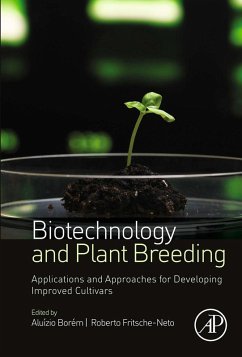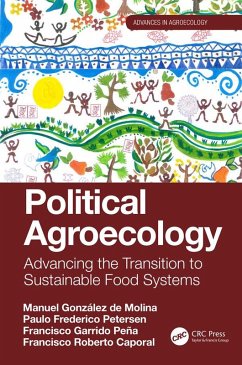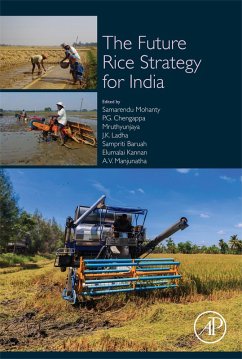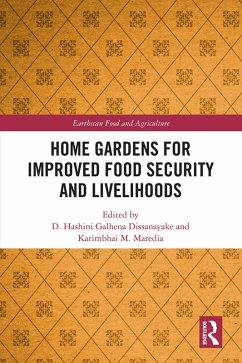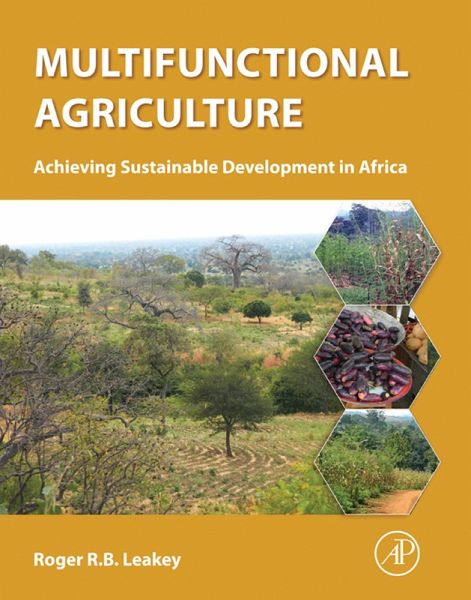
Multifunctional Agriculture (eBook, ePUB)
Achieving Sustainable Development in Africa

PAYBACK Punkte
26 °P sammeln!
In a world increasingly challenged by the need to integrate and understand highly specialized knowledge in a multidisciplinary way, this book is innovative and perhaps unique in addressing this challenge. It focuses on ideas, strategies, techniques and practices spanning many disciplines at the interface of agriculture with: forestry, horticulture, plant physiology, genetics, ecology, soil science, food science, economics, and the social and environmental sciences as delivered by intensified and enriched agroforestry. Multifunctional Agriculture addresses this complexity, using case studies an...
In a world increasingly challenged by the need to integrate and understand highly specialized knowledge in a multidisciplinary way, this book is innovative and perhaps unique in addressing this challenge. It focuses on ideas, strategies, techniques and practices spanning many disciplines at the interface of agriculture with: forestry, horticulture, plant physiology, genetics, ecology, soil science, food science, economics, and the social and environmental sciences as delivered by intensified and enriched agroforestry. Multifunctional Agriculture addresses this complexity, using case studies and insights from the needs of African farmers whose livelihoods are constrained by complex interactions between social, environmental and economic factors and problems underlying agricultural sustainability in Africa. This book, therefore, provides an important resource for those trying to understand the role of agriculture in the achievement of the new Sustainable Development Goals by providing easily implementable, practical and effective methodologies and practices. - Provides a single-source, comprehensive insight into agroforestry/ multifunctional agriculture, it's potential, challenges, and progress - Helps readers understand and assess potential opportunity through implementation - Includes case studies and real-world insights that address common situations and the practical application of best practices - Explores the role of multi-functional agriculture in mitigating climate change impacts, providing value-story beyond crop production
Dieser Download kann aus rechtlichen Gründen nur mit Rechnungsadresse in A, B, BG, CY, CZ, D, DK, EW, E, FIN, F, GR, HR, H, IRL, I, LT, L, LR, M, NL, PL, P, R, S, SLO, SK ausgeliefert werden.




